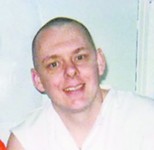Supremes Hear Texas Death Penalty Cases
Supreme Court grapples once again with whether Texas death penalty scheme – and the Texas Court of Criminal Appeals' interpretation of its role in deciding death penalty cases – meets constitutional requirements
By Rita Radostitz, Fri., Jan. 26, 2007

Last Wednesday in three capital cases, the U.S. Supreme Court again grappled with the complicated issue of whether the Texas death penalty scheme – and the Texas Court of Criminal Appeals' interpretation of its role in deciding these cases – meets constitutional requirements.
The first case – Smith v. Texas – focused on the Court of Criminal Appeals' rejection of the Supreme Court's decision to summarily reverse the CCA's earlier decision in the case. But the state's attempt to hijack the real issue – whether the CCA can ignore clear direction from the Supreme Court – by couching the issue as one of "state's rights" seemed to garner some ground with the two newest members of the high court – who were not involved in the 2004 decision.
LaRoyce Smith was convicted and sentenced to death in 1991 for the murder of a former Taco Bell co-worker in Dallas County. At the time of his trial, the Texas death penalty statute focused solely on whether the murder was deliberate and whether the defendant would be a future danger. The Supreme Court had already ruled (in Penry v. Lynaugh) that these two questions were insufficient to allow jurors to consider certain mitigating evidence, so Smith's trial judge tried to fix the problem and told the jury that if they found that the murder was deliberate, and that Smith would be a danger in the future, but still believed that he should not receive a death sentence, they could impose that result by responding "no" to one of the questions on the verdict form. This so-called "nullification instruction" was later found by the Supreme Court to be unconstitutional. So when the court summarily reversed Smith's conviction in 2004 and sent the case back to the CCA "for further proceedings not inconsistent with this opinion" it seemed clear that Smith would receive a new sentencing hearing.
Not so, said the CCA. Instead, in a transparent effort to circumvent the Supreme Court's ruling, the CCA found a purported procedural error that had never been relied upon before to create a ground for rejecting Smith's claims. It was this new procedural finding by the CCA that the Texas attorney general – joined by 21 other states – championed as the real issue in the case. And, instead of the hostility one would expect from the Supreme Court toward a lower court's decision ignoring its holding, Chief Justice John Roberts seemed open to allowing state courts the discretion to reinvent reasons for rejecting death penalty decisions by his court. "What was regrettable," remarked professor Jordan Steiker, co-director of UT's Capital Punishment Center and counsel for Smith, "was how the new members of the court didn't protect prior precedent."
In perhaps the most biting comment from the bench during the argument, Justice Ruth Bader Ginsburg observed that if the CCA's actions are allowed, "you have a Supreme Court decision that the state court can say, thanks, thanks, that's very interesting advice" and rule inconsistently based on a newly formulated "harmless error" standard.
It's clear that the decision in the case will rest with Justice Anthony Kennedy, who voted with the majority the first time around. His skepticism about the way that the CCA rejected the merits of Smith's claims was apparent in his questions, but how far he – and other members of the court – will go in dealing with the Texas court's weaseling around their decision is a tough call.
Justice Kennedy will also likely be the key vote in the other two cases argued on Wednesday. Robert Owen, also co-director of UT's Capital Punishment Center, argued on behalf of Jalil Abdul-Kabir and Brent Brewer, whose cases were joined because they raised similar claims about how the previous Texas statute dealt with mitigating evidence. Owen argued that under Supreme Court precedent, evidence presented in each of his clients' trials could not be properly considered by the jurors, and therefore they should have received a new sentencing hearing. The state countered that the evidence was relevant to one of the special issues and therefore could indeed be considered.
Owen explained, however, that "the prosecutors in both cases made very clear to the jurors … that in answering the future dangerousness question you must put to one side your opinion about whether the defendant's background, for example, calls for a particular sentence and answer the question solely on, as the prosecutor put it, the basis of the facts."
Justice Kennedy seemed troubled by this discord between what the state has said can and should happen with mitigating evidence – that the jury can use evidence of childhood abuse or mental illness to impose a sentence less than death by finding that such evidence reduced the chance that the defendant would be a danger in the future – and the reality of what prosecutors are arguing at trials. That may be the key to the decision in the two cases. Decisions are expected before the end of June.
Got something to say on the subject? Send a letter to the editor.










